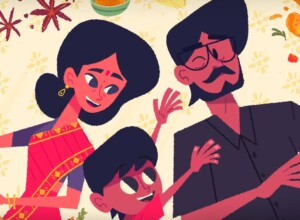Can too much choice ever be a bad thing?
There are two big-picture approaches to designing video games, depending on what experience the developer wants the player to have: Open world or – for the abject lack of a better, more descriptive term – closed world. Only in the last couple years has the open world philosophy and approach been imagined so incredibly and in such depth, but at what cost to the game’s experience?
I’m sure most gamers, when they first started playing games as a kid, thought the technology was incredible. It seemed like if you could just breach the invisible barrier or wall between your character and the edge of the map, you could break free and do anything you wanted. Secret levels or hidden areas didn’t exactly alleviate this feeling that you were ‘being held back – think of the secret warp pipes at the end of world 1-2 in Mario Bros. – this experience was detached from the creation, or the idea that someone had to design that on purpose.
Of course, as you get older, you realize that the games you play have borders for a reason, just like the pages of a book don’t go on forever. But for a game, if the mechanics are in place, shouldn’t you be able to do just do anything you wanted?
 This notion of anything you wanted, supported by advances in technology, made open world games even more exciting for a while. Games like The Elder Scrolls III: Morrowind, for example. It was one of the first open-world games I played, and it gave me that same rush I felt when I was a kid: I could do anything, if I could pull it off. Sure, there’s a storyline, but it isn’t the focus of the game’s world or mechanics.
This notion of anything you wanted, supported by advances in technology, made open world games even more exciting for a while. Games like The Elder Scrolls III: Morrowind, for example. It was one of the first open-world games I played, and it gave me that same rush I felt when I was a kid: I could do anything, if I could pull it off. Sure, there’s a storyline, but it isn’t the focus of the game’s world or mechanics.
It emulates the less rigid world of Dungeons & Dragons, where if you can imagine it, and have the stats to pull it off, you can do it. This was especially true in Morrowind, where physical attacks could completely ‘miss’ if your attributes were too low, based on the sheer mathematics of attacking statistics vs. armour rating. This sort of thing is commonplace in D&D, but coming from more physically accurate first person shooters or platform games this could be unbelievably frustrating – seeing your savage blow strike the target, but count for nought when the dice rolls settle – but it could be seen as an acceptable price to pay for what you got in return.
But there was another problem with this kind of freedom: The focus shifted from a structure that rewards you for following directions to one that makes you seek your own goals and success. Isn’t this one of the things we face in life every day?
Games are an escape for a lot of people and when your escape becomes a chore to even engage in, it usually gets dropped as a means of recreation. People engage in hobbies and other activities with a loose structure, with some goal on improvement: “Today I’ll write a couple hundred words; today I’ll get a little better at throwing a clay pot; today I’ll work on my breathing to aim better at the shooting range.” Unfortunately when you have to plan ahead, to sit down and can’t decide what to do because you have so much on your plate, it can quickly lose its charm.
People like narratives, stories, and patterns. It’s how the brain works. While we partially believe that more=better, the reality is that more=confusion for some of us. Most of us, if we’re feeling particularly honest. Limited choice makes decisions easier, and keeps people from being overwhelmed by unnecessary information. Eric Stone, a social psychologist and professor at Wake Forest University, attributes part of this decision-making ‘paralysis’ with the fact that our brains are really bad at “taking information into account only a little.” All information or choices seem equally important.
Reading a book, for example, is much easier than diving through a Choose Your Own Adventure novel, which you’ll note, is a genre that’s only written for young adults and children.
One of the key problems with developing an engaging open world experience is almost the same problem that users experience while playing: There’s simply too much to do. Developers, their time thinned out, can only dedicate so much energy into each mechanics or system of the game, which keeps it from growing very deep in any aspect. Open world games are very good at being jack-of-all-trades, but masters-of-none.
Are open world games becoming more structured?
Let’s take a look at two titles that can better demonstrate where the lines are becoming blurred between pure open world and story-led, closed world RPGs: The Witcher 3: Wild Hunt and The Elder Scrolls IV: Skyrim.
The Witcher 3 is fairly open, with lots of open world things to do – collect alchemy ingredients, execute contracts or side quests, search for treasure or armour plans to upgrade your gear – but there’s always the story trying to pull you back, begging you to continue on your way.
The Elder Scrolls IV: Skyrim, like many Bethesda titles, puts far less focus into its story to invite you to pay more attention to its open-ended experience. Skyrim is the only Elder Scrolls title that I’ve completed the story for. I usually get lost wandering around the different worlds until I get so deep into side quests or other towns that I completely forget about the story. This sounds fun, and it usually is for a little while; it’s fun to dive in, tinker around, and generally just take it all in as it comes.
In Skyrim, your character is an avatar you create. Aside from whatever personality you assign them, mentally, they have none. Characters do not react to your deeds outside of “good” or “bad” choices you make, like killing a guard in the middle of a town versus killing a dragon. After a while, the loss of direction starts to gnaw at you, depending on your inherent anxiety, and you lose sight of what the game wants you to do. You lose perspective on what’s meaningful, not to just you, but the game world. Outside the narrative or structured parts, your deeds are largely ignored or completely forgotten. No one cares.
This is in contrast to Geralt’s character in The Witcher 3. He’s fully realized with voiced dialogue, choices that make sense for him, and a past and current history with the world he inhabits and the characters around him. He creates and propels the narrative forward. Everyone cares, from people who hate you for helping a village that they tried to burn down to the family you might have saved, or the NPCs from whom you might have forgone a reward for killing a monster terrorizing their town.
On reflection then, it’d be easier to say that Skyrim is an open world game with story elements, while The Witcher 3 is a story-driven game with open world elements. Depending on your point of view and your individual experience of the aforementioned games you might disagree with that statement, but what’s definite is that the line between open world games and more focused narratives are blurring once more, perhaps as developers naturally level out the dive into entirely open world experiences, rounding them into an experience that works for the widest possible audience with the best of both worlds.
Open world games aren’t new, but with advancing game engines and changing design, they’re becoming more sophisticated and bridging imaginative gaps we only dreamed of twenty years ago. Is there something to be said about carving your own path through wilderness, or taking a scenic route that’s established and proven to be interesting?
Interested in open world games? Why not pick up Skyrim or The Witcher 3 from Amazon?







